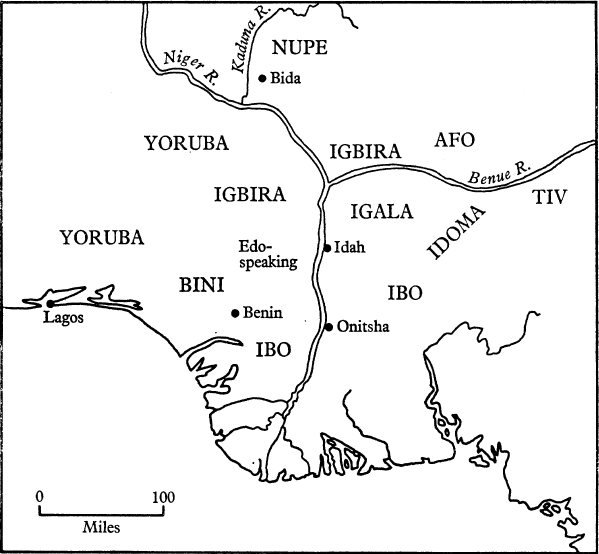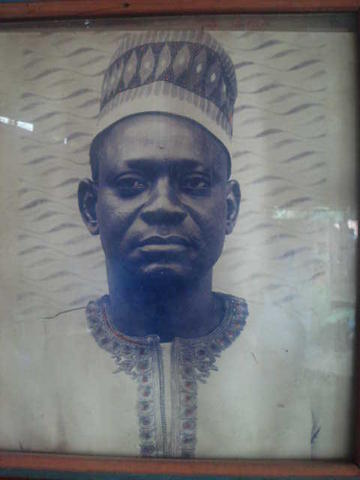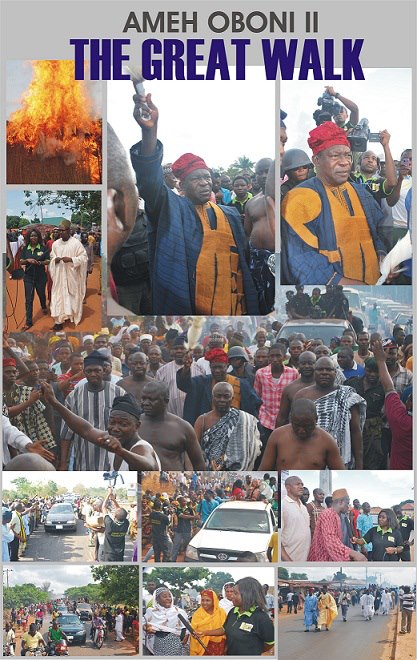
By Michael Achile Umameh
There were roughly 200 years of peace, expansion, colonization and dispersion of the Igala Kingdom. We can liken this to the years of Roman conquest and expansion: Pax Romana.
The 200 years between 1630-1830 were the years of Pax Igalana! In the wake of the symbolic and traditional restoration of Ajaokuta, Lokoja and Igwu (Koton Karfe) to the Igala kingdom, it is right to give this development some historical and cultural perspectives.
The early well organized states in pre-colonial and pre-Islamic Nigeria included the Igbo Kingdom of Nri, the Benin Kingdom, Igala Kingdom, Kanem-Bornu Empire, the Hausa city-states, Kwararafa confederacy, and Nupe.
The middle belt, to which the Igala kingdom belongs, has been a melting-point of cross-fertilization of cultural influences through trade and conflicts over the centuries. There have been centuries of Igala expansion, colonization and dispersion as far afield as the Niger-Delta region. The history of the various ethnic groups is intertwined, and no one history is complete without the other.
For most of the centuries, the ethnic groups in the middle belt lived together amicably and shared expertise and skills. There were cultural diffusion and osmosis. There were a lot of moving in and moving out.
For instance, the Bassa Nge and Bassa Komo moved into the northernmost part of Dekina and Omala. The Ette people moved further away into the Nsukka area. Other Igala groups moved outward towards the Niger-Delta region as far as Ndoni.
There were influxes as well: Idah was pre-colonial era cosmopolitan river port; waves of Ebira, Nupe, Hausa, Idoma, Etsako and more migrated and are now perfectly Igala with these origins. Okenya, near Ajaka in Idah, is an Igala town with Igbo Origin.
The Igala Kingdom was a very benevolent one; it never enforced its language on any territory but insisted on passing on the hierarchy of leadership. Majority of the regions Igala influenced adopted the Attah style of kingship and imported skills in technology, boat building, war practices and arts. And of course, there were a considerable number of intermarriages among prince and princess across the board. Marriage was always the best way to keep out the drums of war.
Here I provide some outline:
Expansion and establishment of the Nupe Kingdom (Prince Tsoede of Idah)
Expansion and establishment of the Ebira Kingdom of Okene (Pioneer Attah Ebira, Attah Omadivi).
Expansion and establishment of the Ebira Kingdom of Igwu/Koton Karfe (Prince Ohiemi 1740)
Expansion and establishment of Igala of Delta North (The Illah, Ebu and Aniomaland).
There are Igala indigenes of Delta State.
Expansion and establishment of Igala ministates in southern Igbo land (Igala are 2% of Anambra population. The are indigenous Anambra Igala: Aguleri, Nteje, Igbariam, Anam etc.). Igala colonization of the Northern Igbo states. Igala is indigenous to Enugu State (For instance, Nsukka and environs).
There are also Igala indigenes in Benue and Edo State.
The Igala provided guards and warriors to guard and guide the family of the Oba of Benin.
The Igala kingdom long before the arrival of the colonizers was in partnership with the Kano city-state in exchange war tactics and cultural practices. (The Ogaganyi (Oganyi) war festival in Idah and Ankpa is one indication).
The Igala also have played significant roles in three ancient civilizations within present-day Nigeria:
Nupe/Nok Civilisation (Black Byzantium)
Igbo-Ukwu Civilisation
Benin Civilisation.
In my opinion, the judicial declaration and restoration of the ownership of Lokoja, Ajaokuta and Koton Karfe are very mostly symbolic and political gestures in righting an overdue historical wrong and setting the records straight. There is no point for the vitriolic, name-calling and premature smear campaign flying around. Kogi State is our collective territory; no one owes any part more than the other. Wherever your heart finds a home is a home.
There is a need for collective research on the mutual relationships and influences of the various ethnic groups that constitute the middle belt. We are not North-Central, we are Middle-Belt. One more historical misnomer to correct.



“In my opinion, the judicial declaration and restoration of the ownership of Lokoja, Ajaokuta and Koton Karfe are very mostly symbolic and political gestures in righting an overdue historical wrong and setting the records straight. There is no point for the vitriolic, name-calling and premature smear campaign flying around. Kogi State is our collective territory; no one owes any part more than the other. Wherever your heart finds a home is a home.”
_______________________________________________________________________________________
@Author. If you do not see the direct contradiction or perhaps intentional twist of logic in the above, then there is a fundamental in reasoning problem.